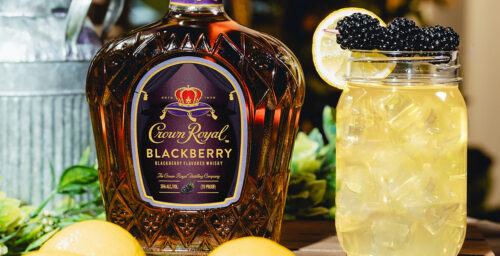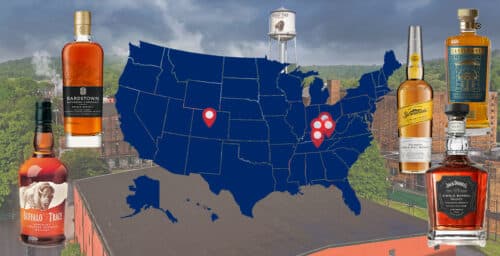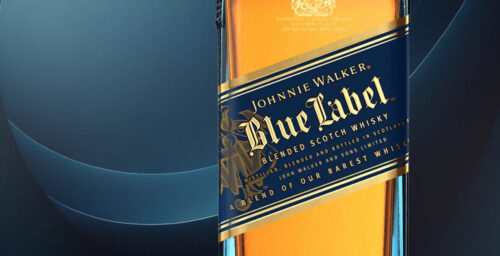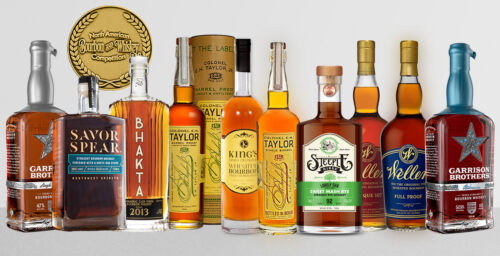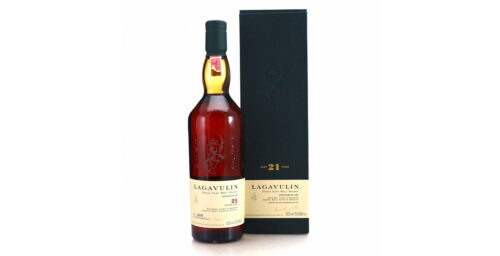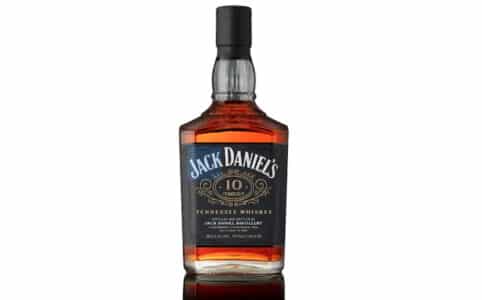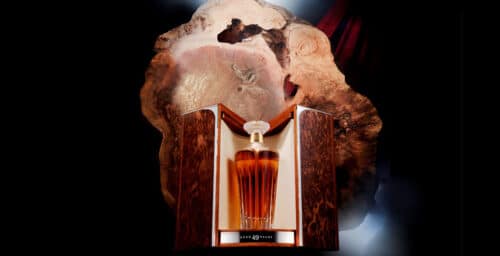When one considers the myriad bourbon brands and distilleries coming out of Kentucky in this day and age, one of the more historic – and classy – has to be Maker’s Mark. The bourbon is known to drinkers the world over because of the unique-looking bottles and their red wax seals, but when you look beyond the whiskey, there’s quite a story to be told of the distillery itself.
Maker’s, which is today owned by Beam Suntory, had its production overseen by one Bill Samuels, Jr., the second generation owner, from the time he became president in 1975 until his retirement in 2011 at the age of 70. His son oversees things today alongside master distiller Greg Davis, but Samuels is known to still lurk around the distillery now and again to keep up on what’s going on.
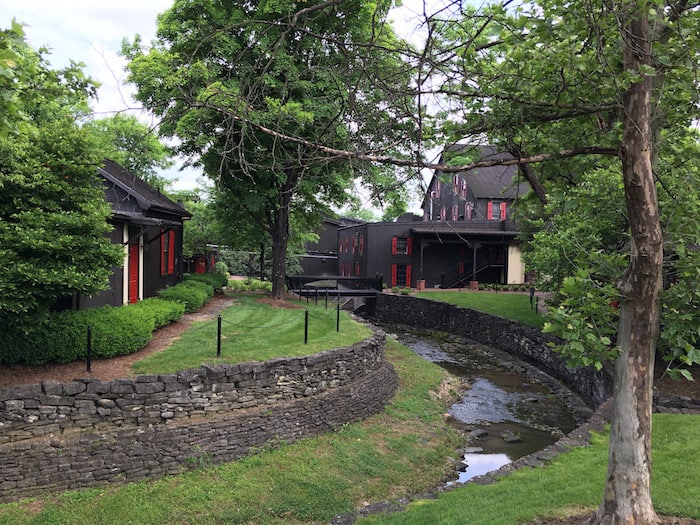
On my trip to Kentucky earlier this year I got the chance to sit with the legendary bourbon icon to talk about Maker’s Mark and its mark on the American whiskey industry. Note this interview has been edited for clarity and brevity.
The Whiskey Wash (TWW): Walking around here I get the sense there’s a great amount of history on this property. When was it settled?
Bill Samuels, Jr.: The property was settled in the spring of 1803. The first thing the Burks family did, was go to the courthouse and get permission to dam Hardin Creek so they could operate a grist mill.
TWW: Is that the creek that runs through the middle of the property today?
Bill: Well, it’s the one that runs behind us. This little stream that you’re looking at here runs right into it. By early 1804, they had the beginnings of the distillery built. That site, which is the basement of the current distillery, is all still intact like it was in 1804. That’s the roots of the place. It was really rebuilt by the third generation of Burks in 1870s.
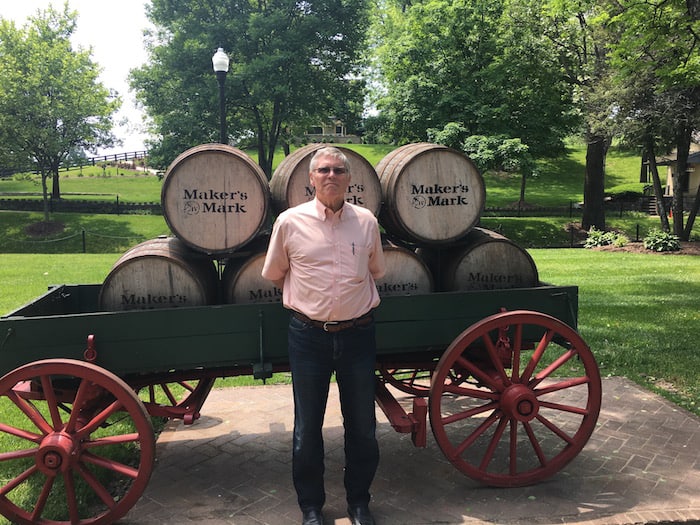
TWW: What was the state of the distillery and the buildings on the property when your family bought it?
Bill: They were horribly run down because this distillery never really recovered from Prohibition. We’ve done some adaptive reuse [since we took it over], but we really have maintained the integrity of the original Victorian site.
TWW: Besides distilling, what else goes on on this property? Are you guys doing any farming?
Bill: We don’t do farming directly, but we have a close connection with the guy that grows our grain. One of the great old wives’ tales, which nobody seems to want to refute, is that the best whiskey comes when you have the water and the grain come from the same soil. We have been buying grain from the same farm family, and that farm family has grown dramatically. When we started with the Petersons here in Lebanon, they had eighty-six acres of row crops.
TWW: How far back?
Bill: It started in the spring of 1954. We bought the distillery in 1953, and it took Dad about six months to fix it up. He started distilling in 1954, so the grain crop would have been a fall 1953 crop. That family, which by the way is run by the grandchildren now, is thousands and thousands of acres. It’s a big, legitimate farm, and all their land is right in this area.
TWW: What was your day-to-day role here as the distillery evolved in the ’80s, ’90s, and the early 2000s before you retired?
Bill: It went kind of like this, from the time I got here, always the challenge was to find customers. The marketing plan was always polish the apple. Never go try to segment the market or do any of the fancy stuff. It’s just make it attractive, so that eventually people passing by, they may find it appealing. It was all about discovery. Discovering something they didn’t think they wanted. We weren’t all that successful, but Dad provided the discipline all the way up to 1980.
What we did was I talked him into letting me hire an advertising agency. The deal was, yes you can hire the advertising agency, but they can’t do advertising. We hired an agency to just allow me to get in front of somebody that had a marketing education that was a very conceptual, creative person so that I could learn how to do my job, essentially, which was position the brand so that if people ever got interested in bourbon with connoisseurship qualities, they might come to us. That led to the idea that we really needed somebody really important and credible to toot our horn if we wanted to do it through advertising.
We stumbled on an opportunity with The Wall Street Journal, got them interested, they came down, and the guy fell in love with my father because he was so uncommercial. They spent three or four days together, he goes back to St. Louis and writes an article, which appeared in the then center column on the front page.
At that time, it was the first anything that resembled an endorsement of a privately held company that they had ever had in that space. In one day, every fine restaurant in the country had to have a bottle of Maker’s Mark. It happened in one day, and it wasn’t so much what we did other than my father making us just wait until the right discovery moment occurred. From that moment, we’ve had double digit growth every year. It’s been thirty-six years.
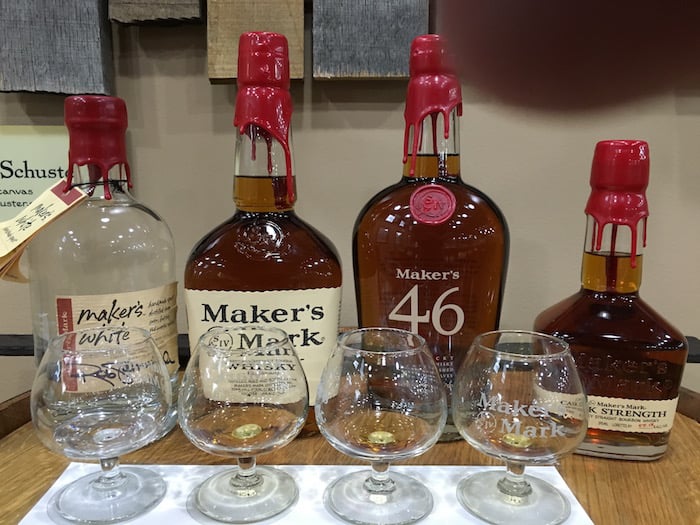
TWW: What does Maker’s Mark mean to you today?
Bill: It’s been a life’s work, it’s been a joy, and I got to tell you now as I look back and see how well bourbon is positioned, I really think of it not so much what it means to me, but wouldn’t it be cool if my father could come back and we could have lunch, and he could see how much bourbon means to Kentucky, and how it has become the calling card when you go anywhere around the world.
TWW: Finally, what’s your legacy here? What do you want to leave behind?
Bill: Oh, I don’t know. I just don’t want to embarrass anybody. You know, when people get old, they get senile and they get dangerous. That’s me, I am a little bit of a loose canon. Probably, in a specific sense, the one that took Maker’s from hobby to icon status, and with it really brought bourbon into the modern era of connoisseurship, or at least shined a light on it.


